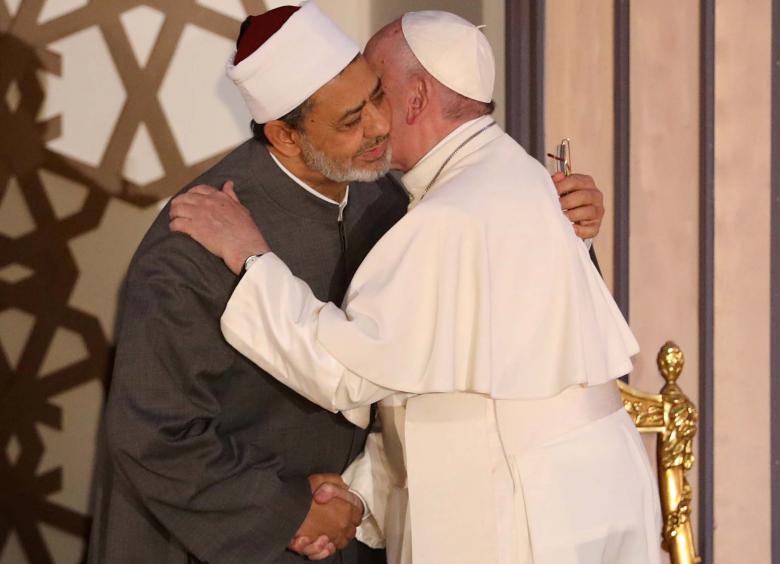Prior to the Pope Francis’ visit to Egypt, an aggressive campaign was launched by members of certain political movements, like the Muslim Brotherhood, and supported by the ISIS attacks on the two Coptic churches.
Yet, despite the threats, the Pope insisted on going ahead with the visit as scheduled and Imam of Azhar defied threats against him and his institution and publically received his visitor.
In reality, the message of extremists behind the heinous campaigns and bombings are not directed against the Pope or even the Christian Coptic Egyptians. They target the Egyptian authority and the Arab states that support it. The extremists’ message clearly says that they are the decision makers and will stand against any outsider relations with their enemies.
The Muslim Brotherhood, which criticized the Pope’s visit, has always boasted about its civilized attitude and how it believes in coexistence with the Christian west. The movement even denounced any seminars by Gulf governments, which it had deemed as backwards and constraining followers of other faiths.
When the Morsi government, the Muslim Brotherhood’s government, was toppled, the movement moved to political sabotage, launching hostile campaigns against the Azhar and Christians in Egypt. The movement’s followers were outraged with the Pope’s visit to their country.
One might wonder why we care about dealing with international religious bodies.
Well, communicating with the Vatican and other large religious institutions in the world is part of the continuous relationship between nations. It aims at organizing the relations and fighting hatred, not converting each party to the other’s religion.
Religions of the world, like Islam, Christianity and Hinduism, need to organize the relations among their followers. Almost every country in the world has followers of those faiths.
During these religiously tense times, it is within the best interest of the whole world that coexistence, not hate, promoters prevail.
We need those who call for tolerance, where there is tension. For instance, France is a Catholic majority country with a Muslim minority. The Pope is influential among his followers to put an end to national and religious extremism, which feeds on racism and political divisions.
Egypt has over eight million Christian Coptic and they were never targeted during the monarchy rule or times of Abdul Nasser and Sadat. They became targets after the emergence of extremism.
Those who condemn the relation with the Vatican and consider it recent and accidental and criticize Muslim clerics involved with it, are ignorant, if not hypocritical agitators.
Throughout history there has always been cooperation between religions. Even Saudi Arabia enjoys good ties with the Pope.
The late King Faisal established the Islamic association for political reasons, has established a relationship that is based on respect. He received cardinals in Riyadh who delivered a letter from the Pope expressing his gratitude to the King for being the most influential figure in the Arab and Islamic world.
In turn and in 1974, the King sent then Minister of Justice, Sheikh Mohammed al-Harkan, along with a delegation of Saudi clerics to reach out to the Vatican and meet Pope Paul VI.
This communication is not centered solely on western Christians, as there are other influential religions, like Buddhism and Hinduism, that have common interests with Arab and Muslims.
We must not leave them victims of their views on Islam that are linked to ISIS and other politicized Islamic groups.
